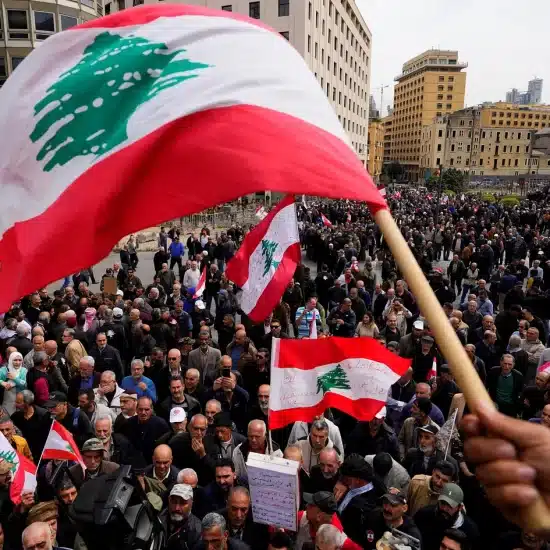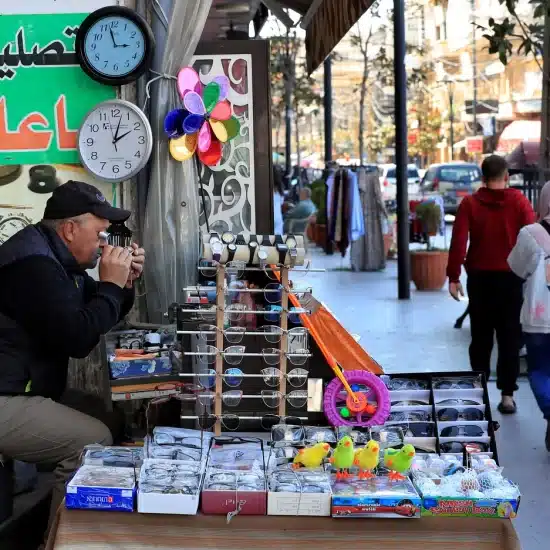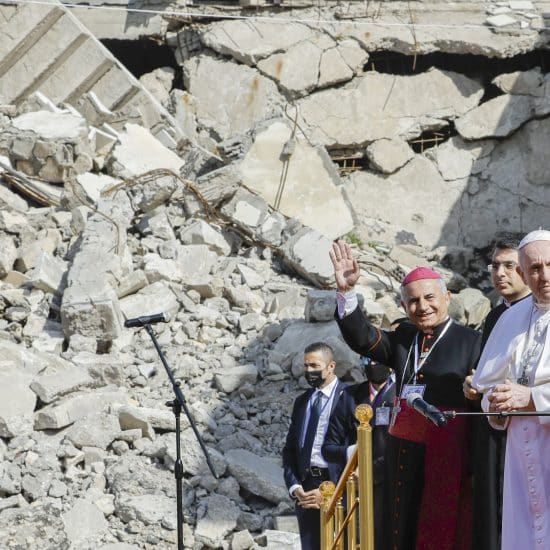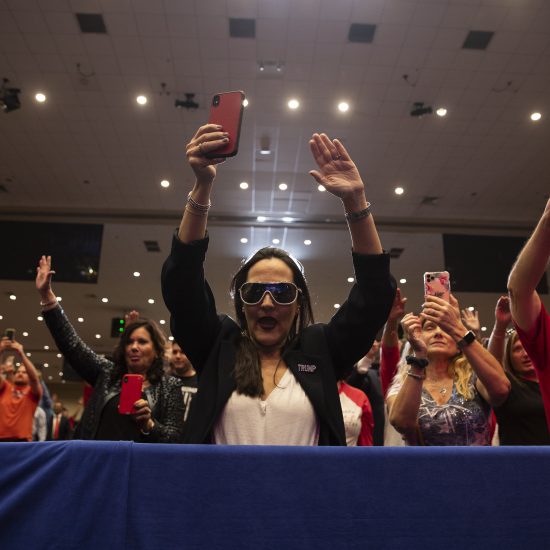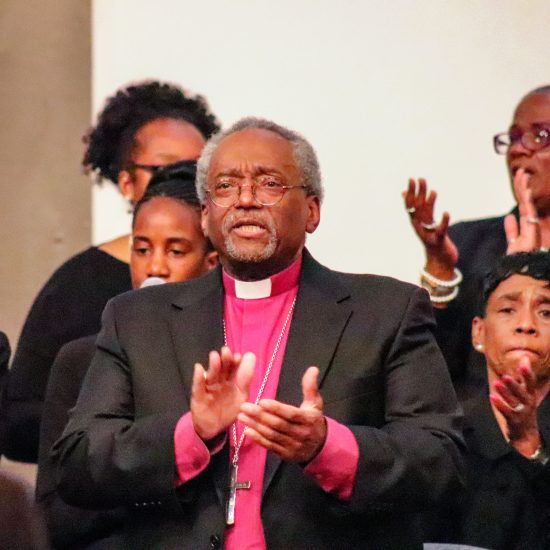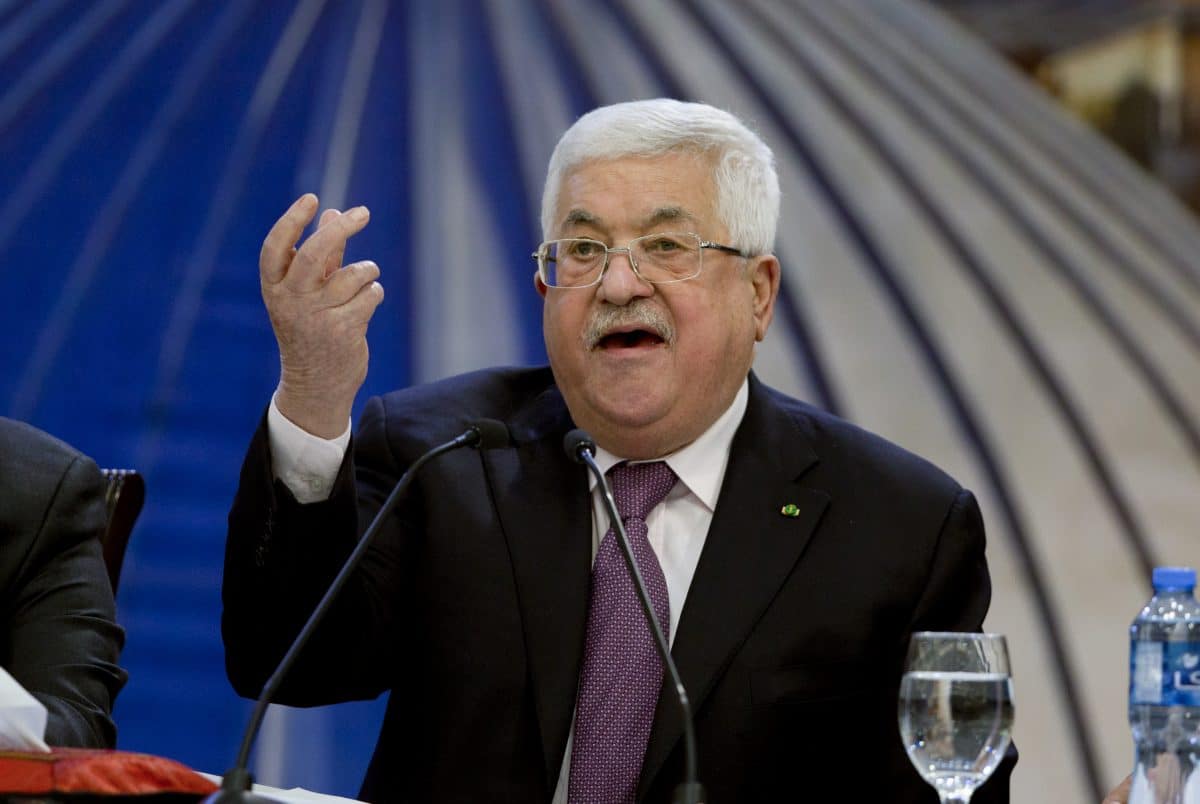
AMMAN (RNS) — President Mahmoud Abbas has guaranteed that at least seven seats of a new legislative council will go to Christians in the elections in the occupied territories to be held May 22. The measure would give Christians, who make up about 1% of the population of the occupied territories, an outsized representation on the council.
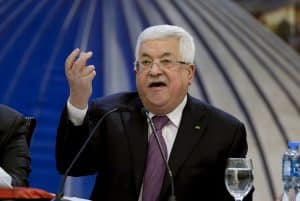
In this Jan. 22, 2020 photo, Palestinian President Mahmoud Abbas speaks after a meeting of the Palestinian leadership in the West Bank city of Ramallah. (Majdi Mohammed/Associated Press)
Palestinian Christians are ambivalent about the quota, which would allow at least seven Christians with the most votes to sit on the council.
Hanan Ashrawi, a Christian who recently resigned her position on the PLO’s executive committee, told Religion News Service that she is uneasy about reserving seats for specific communities.
“When it comes to Christians I don’t see that they are excluded or marginalized. They have been extremely active in political, social, cultural, and economic life, and many of them would be able to gain seats on merit without the quota,” she said, adding that a quota for women members on the council made sense, “because they were discriminated against and they have historically faced a huge challenge.”
Bernard Sabella, another former member of the existing Palestinian Legislative Council, said the Palestinian electorate should vote on the basis of geography.
“We need to have a new vision and a holistic plan that addresses our needs. We need our representatives to represent their nation and not a religion,” he said.
But Bassem Khoury, a former minister, said there would likely be no Christian representation on the council without a quota.
“It is hard to win unless there is a serious effort by the factions to put a Christian Palestinian in a safe spot, and therefore the quota is important and necessary,” Khoury told RNS.
Indeed, Hazem Kawasmi, a Jerusalem resident and head of the Arab World Observatory on Democracy and Elections, told RNS that he would like to see higher representation on the council.
“I would have preferred that the number was nine seats, because Palestinian Christians have had important contributions in Palestinian life and their presence is important,” said Kawasmi, noting that in the 1996 elections, when the total parliamentary membership was 88, Palestinian Christians had a quota of six members, or 7% of the seats.
Allam Al Ahmad, a Palestinian lawyer, agreed, saying the percentage on the council historically has been as high as 31%. But emigration due to violence amid the Israeli occupation has produced a huge drop in the Palestinian Christian population.
Jack Sara, the president of Bethlehem Bible College, told RNS that elections will provide an important chance for Palestinians of all backgrounds and ages to bring new blood in elected institutions.
“This is an important and long-awaited opportunity for young Palestinian Christians to participate in this public process, whether as candidates or as voters,” he said.
Ashrawi said the way to fight emigration is not through political representation but to give them reasons to stay.
“We need a system that protects people and provides for their rights,” Ashrawi told RNS. “If we don’t want our churches to become museums, our country should ensure that it allows for a vibrantly rich and inclusive pluralistic society.”

